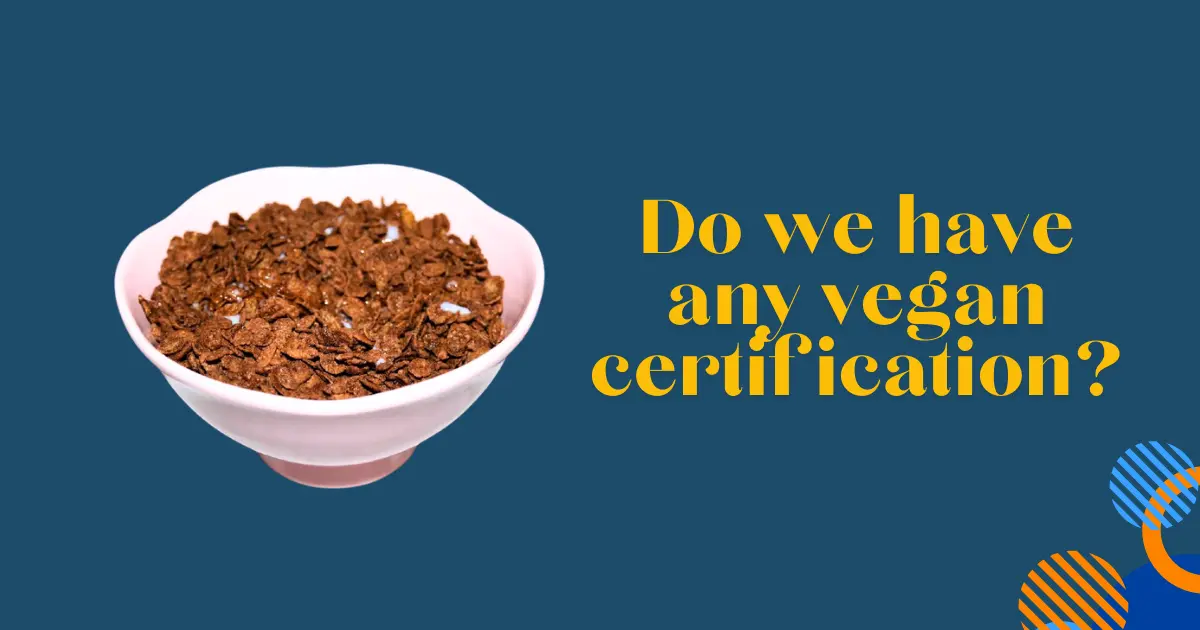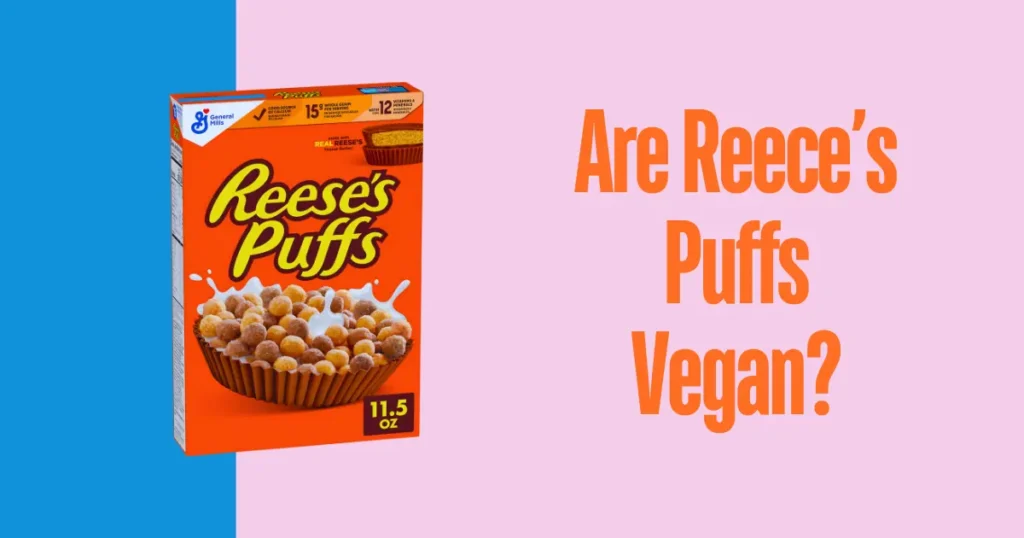Cocoa Pebbles has long been a favorite breakfast cereal, especially for those who love a chocolaty start to their day. With their rich cocoa flavor and crunchy texture, they have become a staple in many households. However, for individuals committed to a vegan lifestyle, the question often arises: are Cocoa Pebbles vegan? Cocoa pebbles is considered vegan because it doesn’t use any dairy product. For confirmation, you need to check its ingredients list. The list of ingredients is a crucial factor in determining if Cocoa Pebbles fits into a vegan diet. In this guide, we’ll explore the ingredients, including any potential animal-derived additives, to provide a clear answer. Additionally, we’ll discuss some common considerations for vegans when evaluating processed foods. Read on to find out if this beloved cereal is right for you and your dietary choices!
What is Cocoa Pebbles?
Post Consumer Brands makes Cocoa Pebbles, a chocolate-flavored breakfast cereal. Part of the Pebbles brand lineup, Cocoa Pebbles features small, crisp, and crunchy rice flakes coated with cocoa to deliver a chocolatey taste. The cereal resembles other rice-based cereals like Rice Krispies but adds a chocolate twist. People love Cocoa Pebbles for their sweet flavor and the way it turn milk into a chocolatey color.
Exploring Cocoa Pebbles
Overview of Cocoa Pebbles
Cocoa Pebbles are a well-known chocolate-flavored cereal produced by Post Consumer Brands. Known for their crunchy texture and rich chocolaty taste, they are a staple in many households. Despite its popularity, Cocoa Pebbles may not be suitable for vegans due to the potential animal-derived ingredients mentioned above.
Alternatives to Traditional Cereals
For those following a vegan lifestyle, it’s essential to explore alternative breakfast options beyond traditional cereals that may contain hidden animal-derived ingredients. Many companies now offer vegan-friendly cereal options made from plant-based ingredients like oats and nuts. These alternatives provide the familiar taste and texture of cereal while adhering to vegan principles. Additionally, vegans can opt for homemade cereal alternatives using ingredients like quinoa, chia seeds, and dried fruit.
The Growing Availability of Vegan Products
As veganism gains popularity so does the availability of vegan-friendly products. From chocolates to ice cream and even cheese alternatives, there are now countless options for those following a plant-based lifestyle. With this increased accessibility, it’s easier than ever to maintain a vegan diet without sacrificing taste or convenience.
Analyzing Cocoa Pebbles Ingredients
To determine whether Cocoa Pebbles are vegan, it’s essential to closely examine the ingredients list. Cocoa Pebbles are primarily made from rice, sugar, hydrogenated vegetable oil, cocoa, and a variety of vitamins and minerals. At first glance, these ingredients may appear to be vegan-friendly.However, manufacturers can sometimes include hidden animal-derived components in seemingly innocuous items.
Common Ingredients and Their Sources
- Rice: This is a plant-based ingredient and is inherently vegan.
- Sugar: The sugar used in Cocoa Pebbles is where things get tricky. In the United States, sugar is often processed with bone char, an animal byproduct, to achieve its white color. Though the sugar itself doesn’t contain animal products, the processing method may conflict with vegan principles.
- Hydrogenated Vegetable Oil: These oils are plant-derived and generally considered vegan. However, some vegans avoid hydrogenated oils due to health concerns.
- Cocoa: Cocoa beans are plant-based, so cocoa powder and chocolate are generally vegan unless manufacturers mix them with dairy-based ingredients
- Vitamins and Minerals: Some added vitamins and minerals can be animal-derived. For instance, Vitamin D3 in cereals can come from lanolin, a substance derived from sheep’s wool.
Potential Non-Vegan Additives
A close inspection of Cocoa Pebbles ingredients is critical to identifying any potential non-vegan additives. These could include:
- Gelatin: A common ingredient used to enhance texture, derived from animal collagen.
- Lecithin: Usually sourced from soy but occasionally from egg yolk.
- Natural Flavors: This vague term can sometimes hide animal-derived ingredients unless specified as plant-based.
By understanding each ingredient and its source, vegans can make informed choices about whether Cocoa Pebbles align with their dietary restrictions and ethical considerations. The vegan movement has grown exponentially in recent years, with more people adopting plant-based diets. This surge has led to a greater demand for vegan-friendly products, including breakfast cereals.
Certification and Labels
To help identify vegan-friendly products, many consumers seek certification and specific labels that indicate adherence to vegan standards. Unfortunately, Cocoa Pebbles are not certified vegan. Without this certification, it becomes challenging to ensure that all aspects of the product meet vegan criteria. If you’re looking for vegan cereal options, it’s best to check for clear vegan labels or certifications on the packaging.
Alternatives to Cocoa Pebbles
If Cocoa Pebbles don’t fit into a vegan diet, there are numerous alternatives available. Many brands now offer vegan-friendly chocolate cereals that cater to those seeking to avoid animal-derived ingredients. Some popular choices include:
- Nature’s Path EnviroKidz Choco Chimps: Certified organic and gluten-free, this cereal contains plant-based ingredients and avoids any animal-derived additives.
- Barbara’s Puffins Cocoa: Barbara’s Puffins Cocoa is known for its minimal ingredients and transparent manufacturing processes, making it a healthier option.
- LIVLO Keto Nut Granola: Although not a traditional cereal, this nut granola is vegan and gives a chocolatey taste, making it a unique and nutritious alternative.
By being mindful of these points, vegans can continue enjoying their breakfasts without compromising their values.
Comparison of Cocoa Pebbles with Other Chocolate-Flavored Cereals
| Cereal | Texture | Sweetness Level | Nutritional Value | Price Range |
| Cocoa Pebbles | Crunchy and crispy | High | Moderate | Affordable |
| Cocoa Puffs | Crunchy | High | Moderate | Affordable |
| Count Chocula | Crunchy with marshmallows | High | Moderate | Moderate |
| Chocolate Cheerios | Crunchy and chewy | Medium | High | Moderate |
This table provides a comparison between Cocoa Pebbles and other popular chocolate-flavored cereals based on texture, sweetness level, nutritional value, and price range.
Individual interpretations of veganism largely determine whether one considers Cocoa Pebbles to be vegan. While the primary ingredients in Cocoa Pebbles do not contain animal products, the presence of sugar processed with bone char, potential cross-contamination, and certain additives may raise concerns for strict vegans. It is always advisable for vegans to carefully read ingredient labels, research manufacturing processes, and contact manufacturers for the most up-to-date information. For those who want to avoid any possible animal-derived ingredients, choosing alternative cereals explicitly labeled as vegan might be the best choice. Ultimately, making informed decisions aligned with personal values is key to maintaining a vegan lifestyle.
Q&A Section
-
Is the sugar in Cocoa Pebbles vegan?
- It’s unclear, as the source of the sugar isn’t specified. Most manufacturers in the United States process sugar using bone char from animals, but some use a vegan-friendly process. Without specific information from the producer, it’s difficult to determine.
-
What about the natural flavors?
- The term “natural flavors” ambiguously includes animal-derived ingredients. Manufacturers source natural flavors from both plant and animal products, so unless they provide more detail, it remains uncertain whether the natural flavors in Cocoa Pebbles are vegan.
-
Are Cocoa Pebbles gluten-free?
- Cocoa Pebbles are typically gluten-free because they are made primarily from rice, which does not contain gluten. However, it is always essential to check the packaging for any cross-contamination warnings or certifications to be sure.
-
Is it appropriate to include Cocoa Pebbles in a complete breakfast?
- While Cocoa Pebbles can be enjoyed as part of a balanced breakfast, they are high in sugar and low in protein. Pairing them with additional protein sources, such as nuts or a plant-based yogurt, can help create a more balanced meal.
-
Do Cocoa Pebbles contain any allergens?
- Cocoa Pebbles may contain soy and other allergens as processed in facilities that handle various ingredients. Refer to the packaging for a full list of potential allergens and cross-contamination warnings.
-
What is the shelf life of Cocoa Pebbles?
- The packaging typically indicates the shelf life of Cocoa Pebbles with a best-by date. You can usually store them for several months in a cool, dry place. After opening, consume them by the expiration date for optimal freshness
-
Can you use Cocoa Pebbles in recipes?
- Yes, you can use Cocoa Pebbles in various recipes, such as cereal bars, cookies, and even as a crunchy topping for desserts. They add a versatile chocolate flavor and crunch to many different dishes.





